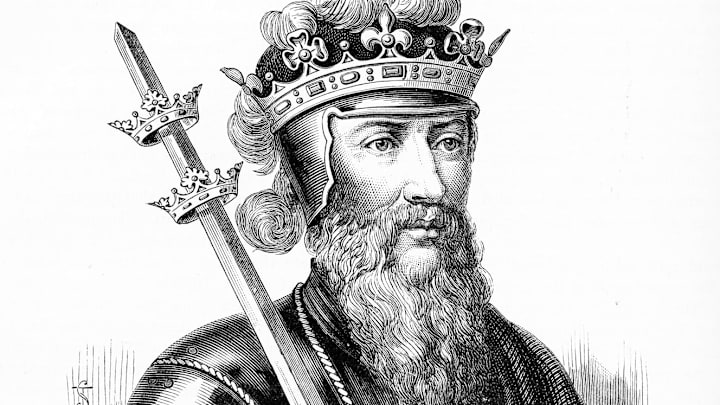England is known for conquering countries across the globe, but they have also gained control over other countries through manipulating complicated successions. For example, Scotland joined with England when Elizabeth I named the Scottish King as her heir. But did you know that it could have happened with France too?
European monarchies create complicated, interwoven family trees, which can make for some interesting circumstances when the monarch of one nation has a claim to another. The English and the French have fought over land for centuries, but that didn't stop them from also attempting to claim each other's thrones.
On January 26, 1340, the English King was also named King of France. While France never legally acknowledged it, the English continued to stake their claim for centuries. Here's how it happened.

How did the English Edward III become King of France?
Edward of Windsor was the child of Edward II of England and Queen Isabella, the daughter (and sister) of French Kings. He came to the throne at age 14 after his mother overthrew his father, but quickly showed that he was not just a puppet king.
After removing his mother from power, he began to forge his own path. While he was actively involved in clashes with Scotland, he was aware of the growing succession crisis in France. All of King Philip IV's sons had died, and the House of Capet was nearly at its end.
Philip VI was chosen as the next King in 1328, but his claim was shaky. While Edward was Philip IV's nephew, Philip was the grandson of Philip III through a fourth son. Adding to that, Edward's wife Philippa of Hainault was also descended from King Philip III, making their children the strongest claimants.
In addition to his familial claim, Edward tried to claim France using land. He had inherited control over Aquitaine, which had been part of the English domain since 1152, and his mother had ensured English control over Guyenne, Gascony, and Ponthieu.
When England and France came into conflict, Edward saw his chance to claim more power. On January 26, 1340, he declared himself King of France. Unfortunately for him, Philip VI was still accepted as king in most of France.

What happens when two Kings claim one country?
This was not the first or last time someone would claim to be the rightful heir to an occupied throne, but it was one of the most significant. Edward repeatedly led military campaigns into French lands, starting the Hundred Years War.
Edward III had many successes early in the war, and his son even managed to capture the French King. In the 1360 Treaty of Calais, he relinquished his claim to France in exchange for a considerable amount of land there, but he brought it back out when the next French King tried to fight the treaty.
While Edward's victories became less frequent as the years went on, his claim was still a thorn in France's side. The French monarchy was able to continue for several more centuries, but the English monarchs continued to claim they ruled France until the country became a republic.
Check back for more segments of "This Day in History" on Ask Everest.
Got questions about history, trivia, or anything else? Send an email to askeverest@fansided.com and we might answer here on the site!
